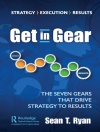How much credit can be given to entrepreneurship for the unprecedented innovation and growth of free-enterprise economies? In this book, some of the world’s leading economists tackle this difficult and understudied question, and their responses shed new light on how free-market economies work–and what policies most encourage their growth.
The contributors take as their starting point William J. Baumol’s 2002 book The Free-Market Innovation Machine (Princeton), which argued that independent entrepreneurs are far more important to growth than economists have traditionally thought, and that an implicit partnership between such entrepreneurs and large corporations is critical to the success of market economies.
The contributors include the editors and Robert M. Solow, Kenneth J. Arrow, Michael M. Weinstein, Douglass C. North, Barry R. Weingast, Ying Lowrey, Nathan Rosenberg, Melissa A. Schilling, Corey Phelps, Sylvia Nasar, Boyan Jovanovic, Peter L. Rousseau, Edward N. Wolff, Deepak Somaya, David J. Teece, Naomi R. Lamoreaux, Kenneth L. Sokoloff, Yochanan Shachmurove, Ralph E. Gomory, Jonathan Eaton, Samuel S. Kortum, Alan S. Blinder, Robert J. Shiller, Burton G. Malkiel, and Edmund S. Phelps.
About the author
Eytan Sheshinski is Sir Isaac Wolfson Professor of Public Finance at the Hebrew University of Jerusalem.
Robert J. Strom is Director of Research and Policy at the Ewing Marion Kauffman Foundation.
William J. Baumol is Academic Director of the Berkley Center for Entrepreneurial Studies at New York University, and Professor Emeritus and Senior Economist at Princeton University.












